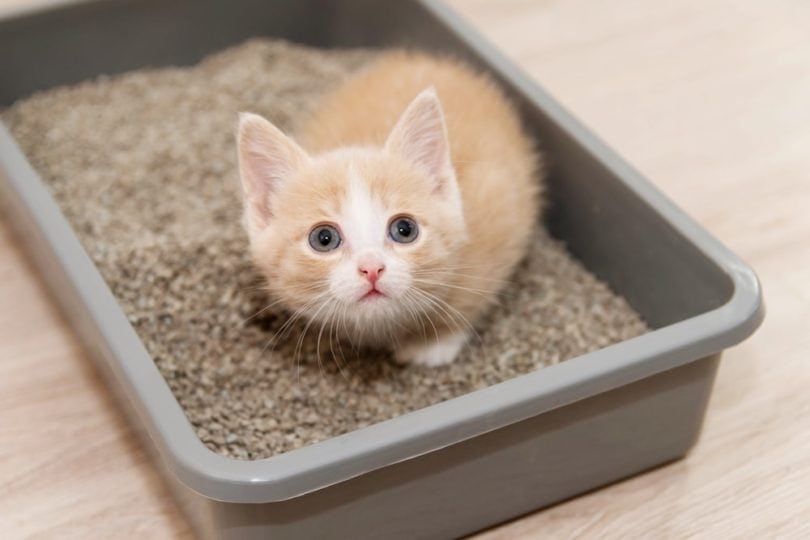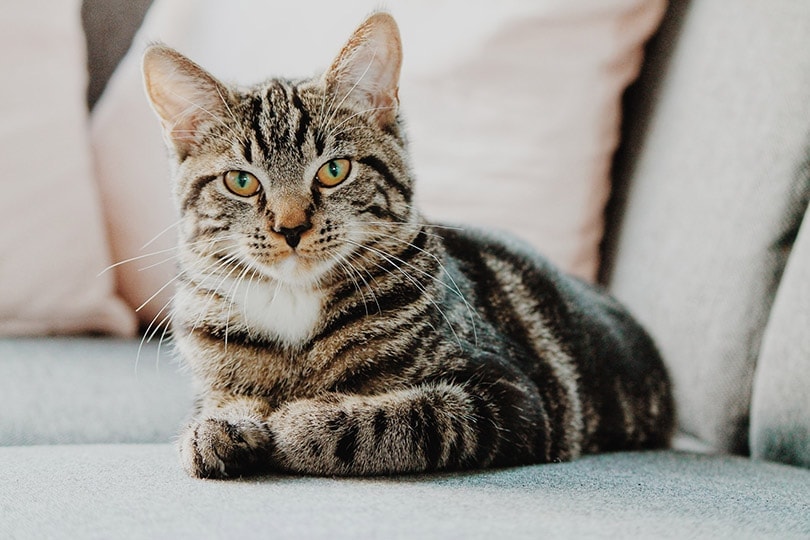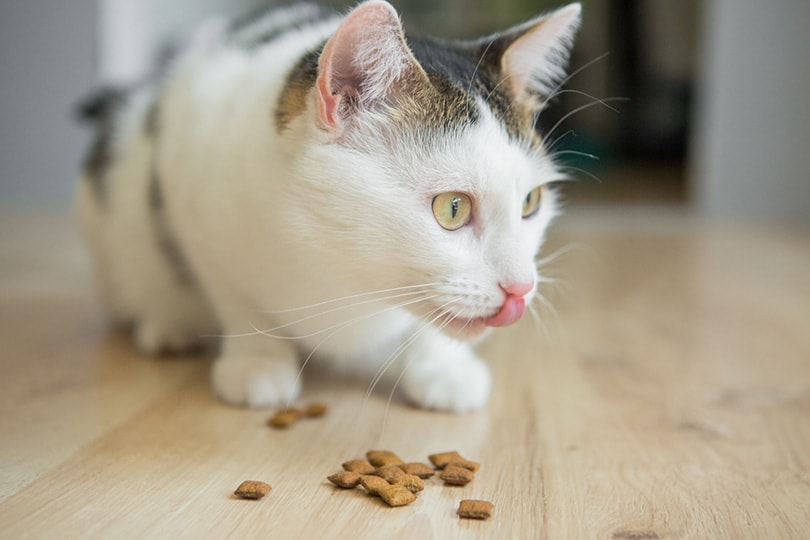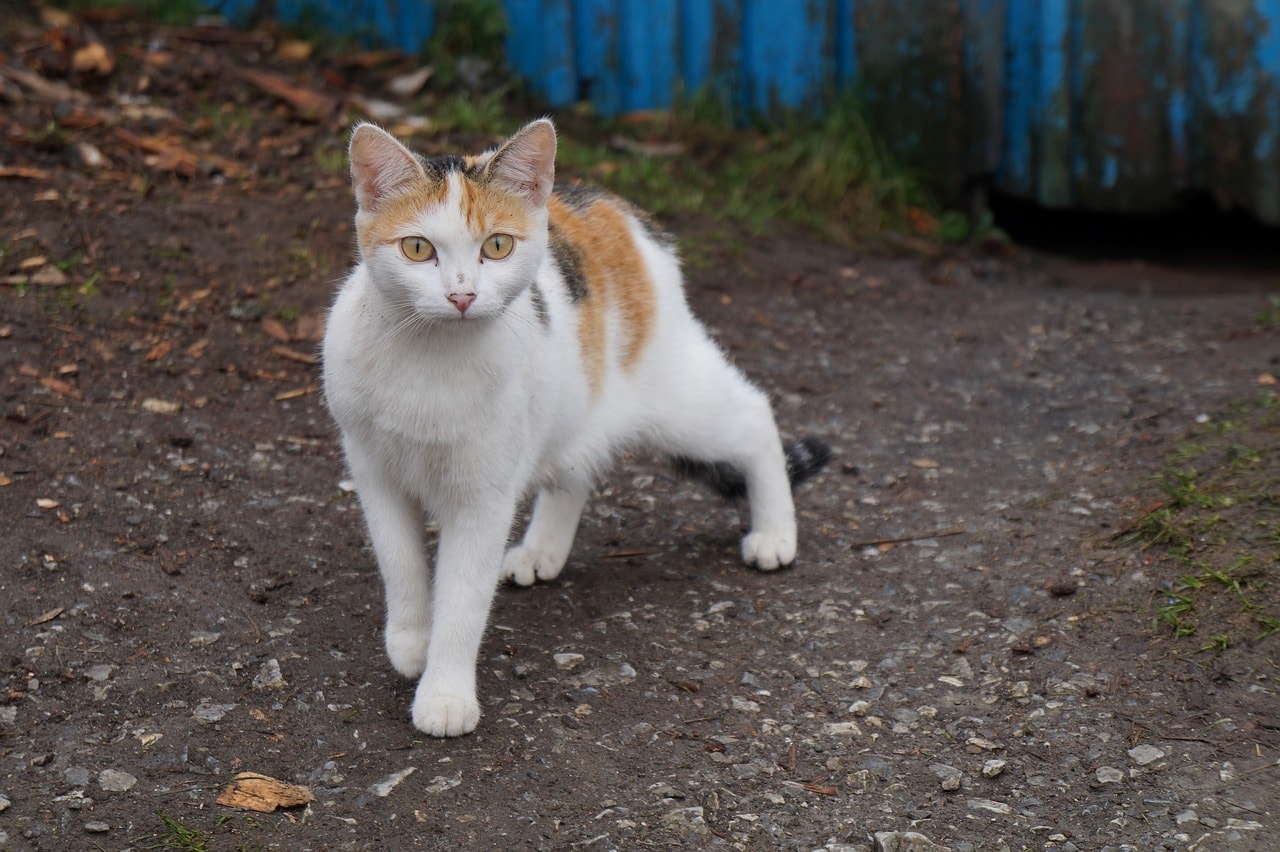Is your cat scratching the litter box excessively, leaving you with an unhygienic mess to clean up? Is this a normal cat behavior, phase, or health problem?
If you find yourself in this situation and are on the search for some answers, you’ve landed on the right spot. This guide will provide you with a few helpful tips that are sure to alleviate your worries and hopefully, eliminate that unsightly litter box mess.
Before offering a few solutions, let’s dive into the potential causes of this odd cat behavior.
Why is my cat scratching the litter box excessively?
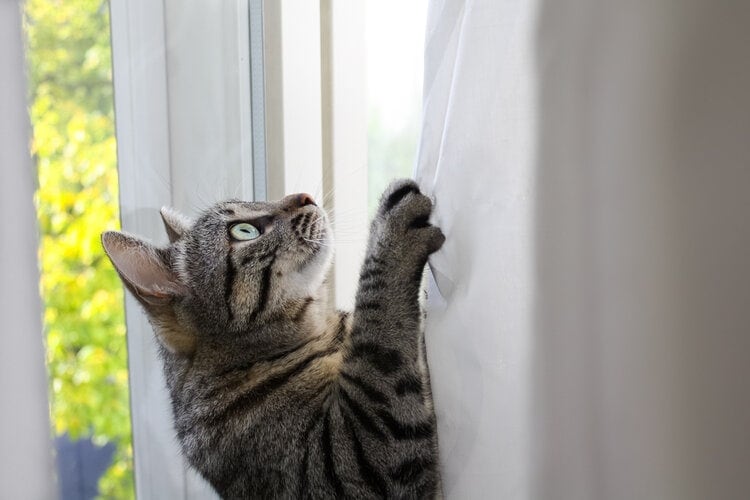
1. Behavior Problems
There are two probable behavioral problems associated with excessive litter box digging and scratching.
Playing
This might only be a viable option if your cat is still quite young, as it’s rare in mature cats. Kittens are curious and often look for the fun in everything that they do. Unfortunately, using the litter box might be one of them. Once they are finished doing their business, kittens may get caught up in the excitement of burying (or unburying!) their waste or find the flow of the litter mesmerizing.
Stress or Anxiety
If there has been an external cause for stress or anxiety, it is common for cats to express their distress through various odd behaviors, excessive litter scratching being one of them. If you sense that your cat may be feeling any of these emotions, it is important to note any changes that may have triggered these feelings so you can take the necessary steps to aid them.
2. Marking their Territory
Cats are a territorial species that are completely aware of their space. If they feel they have to protect their belongings, they will use the pheromones on their paws as a way to mark their area. When it comes to food, for example, they will dig around to lay claim on what is theirs. However, to avoid confrontation, they will sometimes bury their wastes to hide the scents as a signal of not challenging the largest cats.
3. Keeping Paws Healthy
Paw pads can grow to be callused which can be a source of discomfort for your cat. Continual scratching can help exfoliate the rough skin away and new skin regeneration. If you find this to be an issue for your cat, try incorporating more scratching posts throughout the house as a means for destructive scratching prevention.
Also, clumping litters can get stuck to your cat’s paws, which can be uncomfortable and painful, especially for long-haired cats who have long hair between their nails and pads. A quick inspection after your cat uses the litter box will determine whether this is an issue for your cat.
Declawing your cat will not eliminate this issue and can cause more harm to your cat in the long run. You can choose to switch to a fine-grained or pellet litter to avoid this issue.
4. Communication with Fellow Housemates
If your house hosts more than one cat, excessive scratching may be a source of communication between fellow housemates. As we noted above, there are scent glands located in cat paws which allows them to leave their scent to let other felines know about their existence.
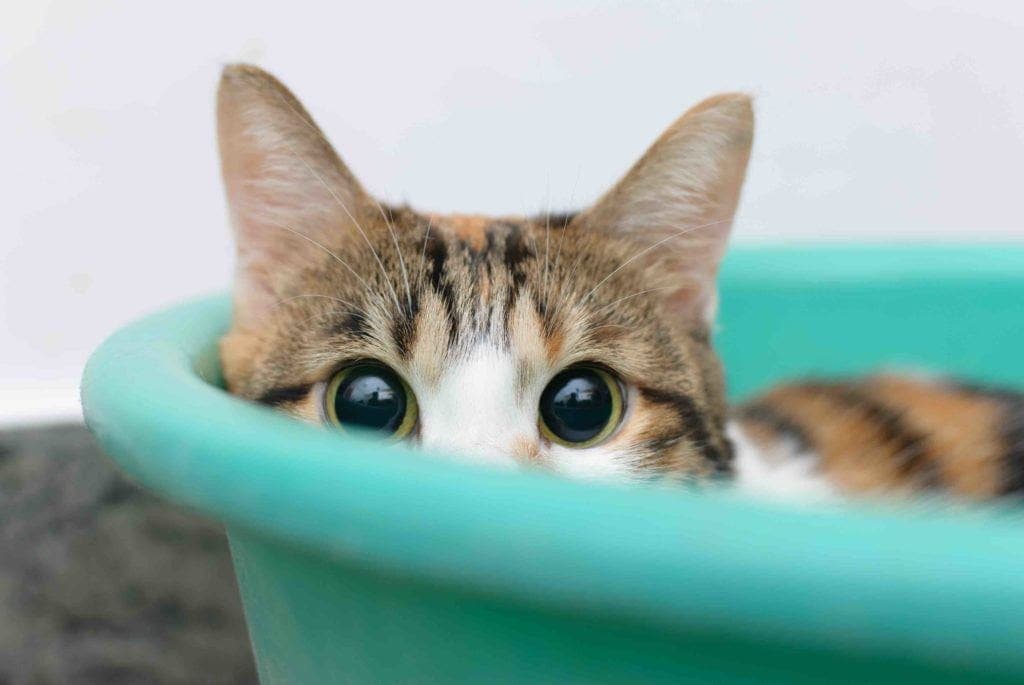
5. Litter Box-Related Problems
If there are no notable differences with your cat’s behavior, then scratching the litter box excessively may be related to the litter box itself.
Dirty Litter Box
The litter box may be too dirty for your cat to feel at ease while finding the right place to do their duty. It may give off some unpleasant smells and be too full resulting in a longer search for a suitable bathroom spot. To avoid this, ensure you replace the litter every couple of weeks and are scooping the waste as often as possible. A helpful note to consider when replacing the entire box contents is to thoroughly wash it with warm water and vinegar to help eliminate any lingering smells.
Litter Box is not big enough
The litter box may be too small if you find that your cat is attempting to dig beyond the litter and box itself. This will result in a mess surrounding the litter box and spread unpleasant odors. This can be avoided by simply upgrading to a nice and spacious litter box.
Not Enough Litter
If your cat has ample room in their litter box, and you are diligent in keeping it waste-free, it could be that there is not enough litter for them to properly dig and bury excrement. It is their instinct to cover their waste to mask their scent.
To counteract each of these litter box-related problems, you can pick up an extra-large litter box and fill it with no less than a 3-inch layer of clean litter.
- See also: Why Does My Cat Try to Bury Her Food?
Litter box not in a calm and private location
Cats prefer privacy, as do most people when trying to use the bathroom, so a high-traffic area like the living room is not good a choice. Do not place the litter box in the same area as their food and water dishes.
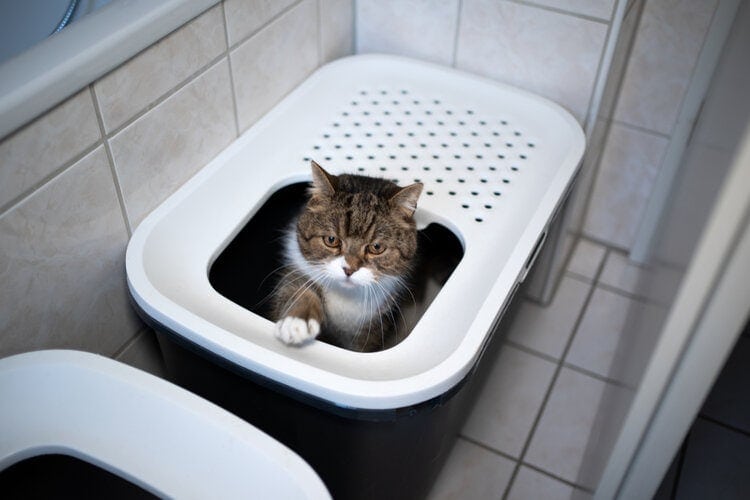
Frequently Asked Questions
How to stop cats from playing in the litter box?
You may find that some cats enjoy playing in their litter box, especially kittens. But is it normal for kittens to play in the litter box? Yes, it is. Kittens are just ‘practicing’ and they love the feeling when digging.
If a mature cat remains in the litter box for longer than their bathroom break, this could be for comfort, as their litter box is full of theirs and other familiar scents which may provide a sense of safety.
We advise that you take your cat to the vet for consultation if this appears to be an ongoing issue for them. As for kittens, a toy is usually all it takes to distract your kitten from playing in the litter box.
Why do cats stare at the litter box?
This is related to their claim of territory. If you see your cat staring at the litter box, it could be that another cat has used it, or there is also a possibility that the box is not clean enough. Simply cleaning the box regularly will help assist with keeping your cat content with their litter box.
Why does my cat scratch the floor around the litter box?
A cat scratching the floor surrounding a litter box might mean they are making a complaint about the litter box itself. Maybe it is dirty or too small or there is not enough litter in the box. This is another reason owners should check and clean the litter box regularly, especially when the cats want to use it.
Conclusion
First and foremost, a quick check of the litter box can help determine what the root of your cat’s excessive scratching might be caused by. More often than not, thorough cleaning of the box will mediate this cat behavior. You should also consider taking your cat to the vet to ensure there are no underlying health issues, stresses, or anxieties.
Hopefully, you were able to find the clarity you needed, that you understand more about your cat and the behaviors that cause excessive litter box scratching.
Feature Image Credit: Nadya Buyanowa, Shutterstock

